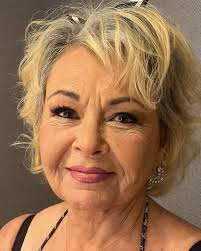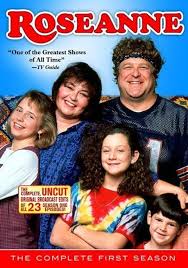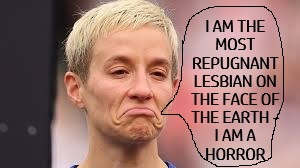By: Daiman Teer for TheSimpletonStar.com

In the glittering, often unforgiving world of Hollywood, few figures have left as indelible a mark as Roseanne Barr.
Born in 1952 in Salt Lake City, Utah, Barr rose from the gritty stages of stand-up comedy—where she honed her razor-sharp wit as the self-proclaimed “Domestic Goddess”—to become a cultural force. Her eponymous sitcom, Roseanne, which debuted on ABC in 1988, wasn’t just a show; it was a seismic shift in how America saw itself on screen.
At a time when television peddled glossy fantasies of upper-middle-class perfection in hits like The Cosby Show or Family Ties, Roseanne dared to portray the raw, unvarnished lives of working-class families. The Conners of Lanford, Illinois—factory workers grappling with bills, marital spats, and the quiet desperations of everyday existence—felt like neighbors, not archetypes. And at the heart of it all was Barr, embodying Roseanne Conner with a fierce, unapologetic authenticity that made her a genius in every sense: a writer, producer, and performer who infused the series with her own blue-collar truths.
The show’s brilliance lay in its refusal to sanitize struggle.
Episodes tackled unemployment, teen pregnancy, homosexuality, and even drug addiction with humor that cut deep but never condescended.
TV Guide ranked it #35 on its list of the 50 Greatest TV Shows of All Time in 2002, and episodes like “A Stash from the Past” cracked the top 20 of their 100 Greatest Episodes.
Critically, Roseanne was a juggernaut: it snagged the #1 spot in Nielsen ratings from 1989 to 1990, stayed in the top four for six seasons, and the top 20 for eight. Awards poured in, validating its cultural punch—Peabody Awards in 1989 and 1992 for its unflinching honesty; a Golden Globe for Best Television Series – Musical or Comedy in 1993; and People’s Choice Awards galore, including Favorite New TV Comedy in 1989. Barr herself was a magnet for acclaim: an Emmy for Outstanding Lead Actress in 1993, a Golden Globe that same year, and five more People’s Choice nods for her magnetic presence.

Co-stars like John Goodman and Laurie Metcalf (who also nabbed an Emmy and Golden Globe) shone alongside her, but it was Barr’s vision—co-created with Matt Williams—that made the magic. In an era of “everything else sucked,” as one fan might put it, Roseanne was a beacon of brilliant writing and acting, proving that real people could anchor prime-time gold.
Yet, for all its triumphs, Barr’s story took a devastating turn in the past several years, one that exposed the brutal machinery of “woke cancellation” she arguably pioneered as its first high-profile victim.
The 2018 revival of Roseanne—after a 21-year hiatus—was a ratings smash, pulling in 18-27 million viewers per episode and ranking #3 across all networks, behind only Monday Night Football. It was a triumphant return, blending nostalgia with fresh takes on modern family life, and even earned a quick renewal for an 11th season. President Trump himself called to congratulate her on the success. But on May 29, 2018, a single tweet unraveled it all.
In a late-night supposedly Ambien-fueled post, Barr compared former Obama advisor Valerie Jarrett to a blend of the “Muslim Brotherhood & Planet of the Apes.” The backlash was swift and ferocious: ABC canceled the show within hours, calling the remark “abhorrent, repugnant and inconsistent with our values.”
Co-stars turned on her—Sara Gilbert, who played her TV daughter Darlene, publicly condemned the tweet as not reflecting the cast’s beliefs, while consulting producer Wanda Sykes quit on the spot. Sykes, a marginal mediocrity on a good day, used her Hollywood lesbian cred to pile on the debris field.
Barr apologized profusely, blaming the medication and calling it a “bad joke,” but the damage was done. Her agency dropped her, episodes vanished from streaming, and the network rebranded the show as The Conners, killing off her character with an opioid overdose—erasing her from the legacy she built.
This wasn’t just a firing; it was a public execution, the blueprint for cancel culture’s playbook: one misstep, amplified by social media outrage, and a lifetime achievement is torched. Barr, a vocal Trump supporter whose show dared to reflect Middle America’s frustrations, became a scapegoat for a Hollywood elite terrified of her influence.
As she later reflected in a 2023 stand-up special, Cancel This!, on Fox Nation, “I got my whole life ruined, no forgiveness and all of my work stolen and called a racist for time and eternity.”
Supporters echoed this sentiment online, with one X user declaring her “not racist… one of the realest celebs… for the people… extremely smart,” lamenting how “everyone who ruined her TV show” couldn’t touch her legacy.
Another pointed out the irony: the Obamas’ inner circle allegedly pulling strings behind the scenes, with the executive who axed the show later inking a Netflix deal with them.
And let’s not forget the double standard—Jimmy Kimmel, whose past blackface sketches resurfaced in 2020, got a mere suspension and quick ABC reinstatement in 2025 for controversial remarks, while Barr’s career was “socially erased.”
TV without Roseanne has suffered:
The Conners limped along with middling ratings, a pale shadow of the original’s fire. But here’s the truth about Roseanne Barr: she’s no victim in the narrative sense—she’s a survivor, as intelligent and thoughtful as ever. Far from the caricature painted by her detractors, Barr has always been a deep thinker, blending comedy with commentary on feminism, class, and politics. In recent years, she’s channeled that resilience into bold comebacks. Her 2023 Fox Nation special roasted cancel culture head-on, proving her stand-up edge remains lethal. By 2025, she’s plotting a new comedy series about a family “saving America with guns, the Bible, petty crime, and alcoholism”—a cheeky nod to her Conner roots, now under her full control.
She’s featured on Tom MacDonald’s track “Daddy’s Home,” taking sly digs at pop culture icons, and hosts The Roseanne Barr Podcast, drawing guests like Katie Hopkins for unfiltered chats.
Living on her Hawaiian ranch, she’s embraced sustainability, farming macadamia nuts and advocating for working families—echoing the very ethos that made her famous.
Roseanne Barr deserves better because she is better: a genius who humanized the heartland, won Emmys and Globes not by pandering but by persisting, and weathered cancellation with the same grit she brought to Lanford. Hollywood may have tried to bury her, but like the Conners themselves, she keeps rising. In a TV landscape still chasing her blueprint, it’s time to rewrite the ending: Roseanne isn’t canceled—she’s eternal.
In plain English: The Simpleton Star loves Roseanne. We always have and we always will.



